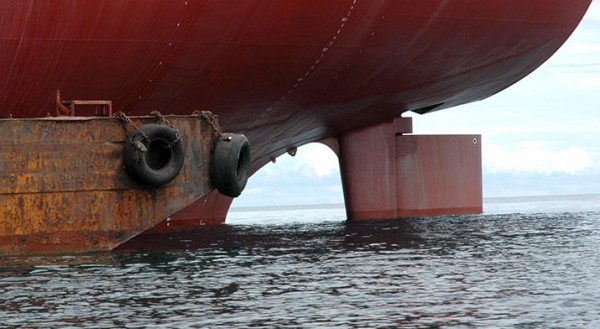Responding to the increasing concerns regarding the impact of hull biofouling on the marine environment, BIMCO and a group of industry partners have set out to create an internationally recognised standard.
The group includes eight different organisations, among of which paint manufacturers, ship owners and cleaning companies. They aim to establish an international standard that will work in practice. The standard is expected to be finalized in the autumn of 2019.
[smlsubform prepend=”GET THE SAFETY4SEA IN YOUR INBOX!” showname=false emailtxt=”” emailholder=”Enter your email address” showsubmit=true submittxt=”Submit” jsthanks=false thankyou=”Thank you for subscribing to our mailing list”]
The standard aspires to ensure that the result of the cleaning is complying with a set of specifications, that the environmental impact of the process and coating damage is controlled and that the cleaning process is safe and effective.
Part of the standard will try to ensure that the paint is not damaged during cleaning, and that debris and wash-water is collected in a sustainable manner.
The standard also regards how shipowners can use it in their ongoing maintenance plans and will establish an approval system for underwater cleaning companies,.
Currently, the standard undergoes practical trials, in order to send it to appropriate international organisations for endorsement.
Today, underwater cleaning is only allowed in a few locations, while coastal and port states tend to tighten their rules for underwater cleaning.
This may increase emissions from shipping as fouling increases the fuel consumption or in worst case force the ship to change its route.
BIMCO said.






























































